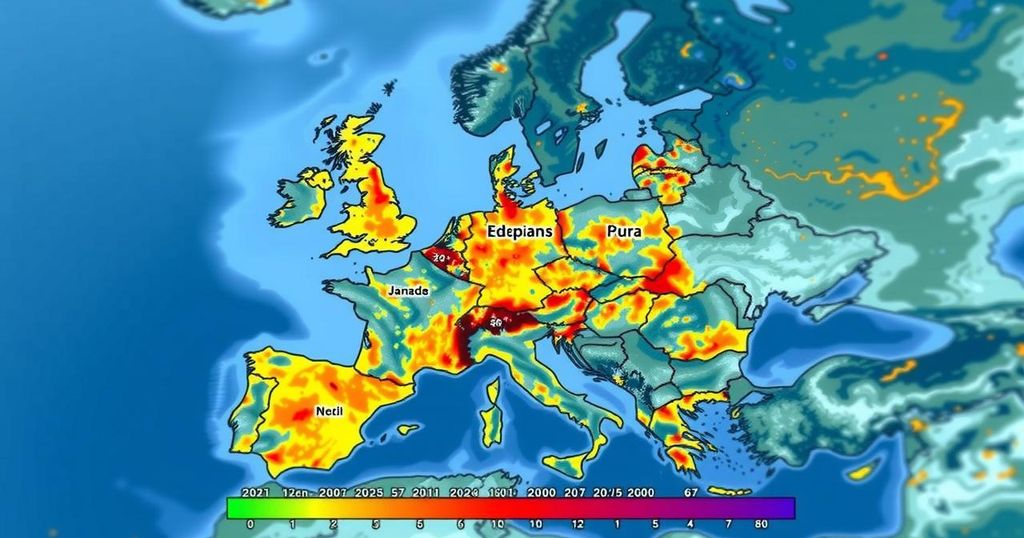Climate change
ASIA, AZERBAIJAN, C3, CLIMATE, CLIMATE CHANGE, COPE, COPERNICUS, COPERNICUS CLIMATE CHANGE SERVICE, DONALD TRUMP, ENVIRONMENTAL POLICY, EU, EU MONITOR, EUROPE, EUROPEAN, EUROPEAN AGENCY, GLOBAL WARMING, GREENHOUSE GAS EMISSIONS, MILTON, NORTH AMERICA, PARIS AGREEMENT, SAMANTHA BURGESS, SERVICE, SPAIN, STATES, UN, UNITED STATES
Marcus Li
0 Comments
EU Monitor Predicts 2024 Will Be Hottest Year Recorded
The EU’s Copernicus monitor projects that 2024 will be the hottest year ever recorded, with temperatures exceeding 1.5C above pre-industrial levels. This milestone follows a month of severe climate events and highlights the urgent need for action at the upcoming UN climate talks in Azerbaijan, as the world faces escalating climate challenges.
According to the European Union’s climate monitor, Copernicus, 2024 is nearly certain to be recognized as the hottest year on record, with global temperatures anticipated to surpass 1.5 degrees Celsius above pre-industrial levels. This information emerges amidst an alarming rise in climate-related catastrophic events, emphasizing the urgent need for global action to mitigate further damage. Key discussions are expected to arise at the upcoming UN climate negotiations in Azerbaijan, aiming at setting new carbon reduction targets as the world grapples with unprecedented climate impacts. Remarkably, prior to these discussions, data indicate that average temperatures have already exceeded the limits set by the Paris Agreement five years earlier than anticipated. The current situation reflects a new milestone in temperature records, as the Copernicus Climate Change Service reports that last month was the second-warmest October on record. Samantha Burgess, Deputy Director of Copernicus, notes, “It is now virtually certain that 2024 will be the warmest year on record and the first year of more than 1.5C above pre-industrial levels.” This staggering rise in temperatures aligns with a broader trend of increasing climate volatility, characterized by significant weather extremes and heightened greenhouse gas concentrations in the atmosphere.
The urgency surrounding climate action has intensified, prompted by a series of increasingly severe climate events worldwide. The published findings by Copernicus are underscored by unprecedented flooding, storms, and ongoing droughts impacting millions. Historically, the establishment of the Paris Agreement aimed to limit global warming to below 2 degrees Celsius, preferably to 1.5 degrees Celsius, to avert the most severe consequences of climate change. However, current projections suggest that without substantial action, global warming could rise significantly this century, exacerbating weather extremes and their devastating effects.
In summation, the predictions made by Copernicus regarding 2024 being the hottest year on record are a clarion call for immediate and concerted global efforts to address climate change. With temperatures already reaching alarming levels, it is crucial for nations to recommit to their environmental responsibilities, particularly during the forthcoming COP29 negotiations. The implications of inaction could lead to irreparable damage to the planet, emphasizing the need for enhanced commitments to reduce carbon emissions and mitigate climate impacts.
Original Source: www.france24.com




Post Comment